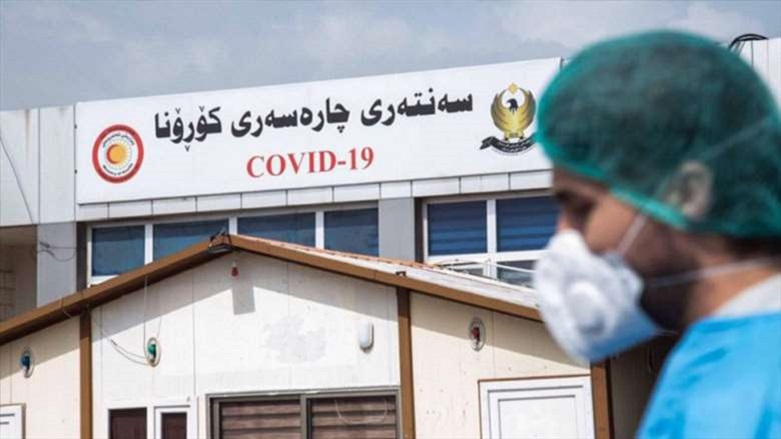COVID-19: Kurdistan Region records more than 500 new cases, six deaths in 24 hours

ERBIL (Kurdistan 24) – Health authorities in the Kurdistan Region recorded more than 500 new COVID-19 cases on Friday as the Region continues to face the rapidly spreading UK variant of the novel coronavirus.
A health ministry statement said health workers had carried out 7,954 tests in the past 24 hours.
The Region recorded new 505 infections in the past 24 hours. According to Kurdistan Regional Government (KRG) figures, the total number of coronavirus infections has reached 115,015 since the outbreak began in the Kurdistan Region in early March 2020.
The ministry also recorded six deaths over the same period, raising the death toll during the pandemic to 3,585.
Health officials say that more than 106,000 people have recovered from the highly contagious disease, a categorization that indicates a person is no longer being actively treated by health professionals, not that they have fully recovered from the infection.
Increasingly, medical experts recognize that COVID-19 symptoms, some of them serious, can continue long after a person formally recovers, and that various effects such as significant lung damage could be permanent.
Health Ministry Warnings
The health ministry on Wednesday warned that the UK variant of coronavirus is spreading quickly across the Region, causing a burden on the hospitals and other health facilities.
In late February, the Region’s health authorities confirmed five cases of the UK coronavirus variant. One day later, 14 new cases of the same version were detected, including seven recorded in tourists.
Read More: What you should know about the UK COVID-19 variant in the Kurdistan Region
The UK coronavirus variant was first detected in the county of Kent in southeast England in September 2020.
Editing by Joanne Stocker-Kelly
